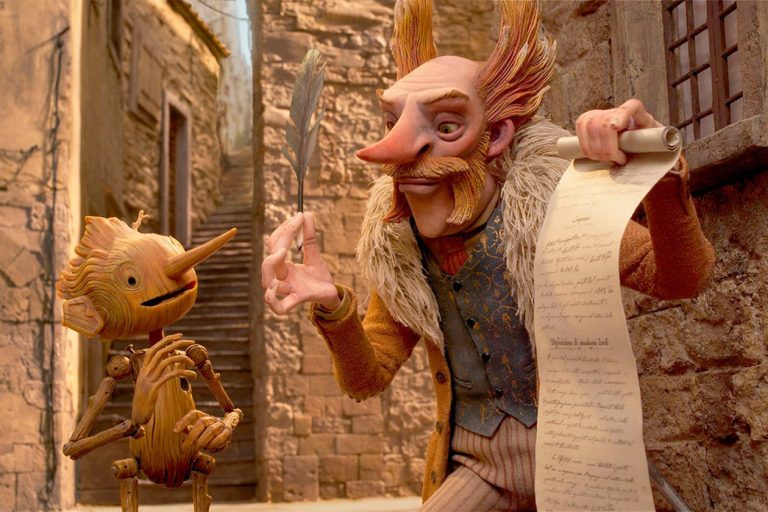27 de diciembre 2022

“NicaraguAmor” Cultural Caravan for Nicaraguans in the USA

PUBLICIDAD 1M
PUBLICIDAD 4D
PUBLICIDAD 5D
What this version of Pinocchio denounces is not the childhood lie of the survivor but the post-truth of the caudillo (strongman)

Photo: Internet | Niú
Guillermo del Toro and Mark Gustafson have made an animated adaptation of Pinocchio (1883), the children’s tale by Carlo Collodi. Created by a Florentine mason in the period after the Italian unification, the story of Pinocchio, a wooden puppet that becomes an admirable child, by dint of learning the values of honesty and integrity, taught to him by master Geppetto and the Talking Cricket (Jiminy Cricket), the voice of conscience, symbolizes the moral formation of modern man.
While in the village Pinocchio experiences Gepetto’s grief, who with great efforts tries to repair the church’s Christ, mutilated by bombs. In the circus he witnesses the meanness of utilitarianism and ambition. Both spaces, the town and the circus, are superimposed in the film as stations of a decadent world, which gradually drifts towards the forced homogeneity of totalitarianism.
Pinocchio quickly learns the horrible consequences of his lies and, at a decisive moment, is capable of using them to save his dear ones. The scene in which they are swallowed by the whale and must survive in the belly of the sea monster recalls the biblical passage of Jonas. In the monster’s entrails, Jonas receives the assignment to pray and preach to grant the salvation to Nineveh, a city consumed by vice and perdition like Geppetto’s village.
A similar revelation comes to Pinocchio, who improvises a bridge with his lies to free his friends and return them to earth. In Del Toro and Gustafson’s version, Pinocchio is a survivor of Mussolini and the Blackshirts, but also of Leviathan, which symbolizes the whale. Herman Melville’s Moby Dick (1851) was written years before Collodi’s Pinocchio, with a similar message around the possibility of surviving evil.
The new Pinocchio defeats Leviathan in all its forms, as he buries his loved ones and lives far from the city: the place of lies and post-truth. Pinocchio’s lies appear like rites of passage that lead him to identify and overcome the most perverse forms of deception, especially those coming from the State, armies, churches and bureaucracies.
The cult of personality, militarism and racism are attributes of Mussolini’s fascist experiment, but also of all totalitarianisms and authoritarianisms since then. What this version of Pinocchio denounces is not the childish lie of the survivor but the post-truth of the caudillo: be it Trump or Orbán, Bolsonaro or Maduro, Putin or Ortega.
This article was originally published in Spanish in Confidencial and translated by Havana Times
PUBLICIDAD 3M
Historiador y ensayista cubano, residente en México. Es licenciado en Filosofía y doctor en Historia. Profesor e investigador del Centro de Investigación y Docencia Económicas (CIDE) de la Ciudad de México y profesor visitante en las universidades de Princeton, Yale, Columbia y Austin. Es autor de más de veinte libros sobre América Latina, México y Cuba.
PUBLICIDAD 3D